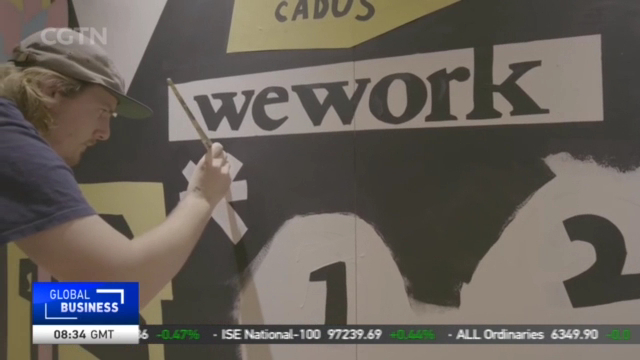
17:48, 18-Apr-2019
Property Market: Investors scale back funding for co-working spaces
Updated
17:40, 21-Apr-2019
02:29

Instead of the constantly unchanged, boring and isolated "box", a sharing office trend is blooming in U.S.. Spaces like Wework and Mindspace offer shorter lease, and better working environment for their tenants. Giles Gibson has the story.
The faces of our cities are constantly shifting.
But indoors, office spaces haven't changed much in 50 years.
Flexible firms like Mindspace say they're altering the model.
SHAI FOGEL, EXPANSION LEAD U.S. MARKET, MINDSPACE "So we're trying to create a very unique and creative atmosphere. The design speaks for itself, it's very creative, it's not something that is boring. We always say that if you go into a Mindspace, you go into somebody's living room and not into an office space, so it's very vintage and homey and cosy."
Instead of conference rooms, members can have small meetings in "One on One" pods.
Instead of happy hour at the end of the day, there's "Mindspace Hour", where members are encouraged to discuss big ideas and network.
But property giant JLL, which produced a recent study on office space trends, says what tenants really like about the model is the flexibility, not necessarily the community extras.
SCOTT HOMA, DIRECTOR U.S. OFFICE RESEARCH, JLL "We think that the direct market out there will have to do things like building space out on spec in advance of these tenant needs to shorten lease terms to be able to be more accommodating groups that might not have any insight into what their headcount might be in six weeks, let alone six years."
Meanwhile, there are signs that some investors are less enthusiastic than before about the sector.
Japan's Softbank recently slashed a new investment in industry leader WeWork from a planned $20 billion down to $6 billion.
Investors in Abu Dhabi and Saudi Arabia reportedly scaled back their commitment, after WeWork lost more than $1 billion in the first nine months of 2018.
GILES GIBSON WASHINGTON D.C. "Meanwhile, by giving out short leases but taking on longer leases themselves, companies like WeWork and Mindspace could find themselves exposed if an economic downturn pushes tenants out. Giles Gibson, CGTN, Washington."

SITEMAP
Copyright © 2018 CGTN. Beijing ICP prepared NO.16065310-3
Copyright © 2018 CGTN. Beijing ICP prepared NO.16065310-3